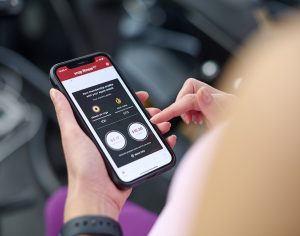By constantly monitoring operating costs, the better chance your business has of fulfilling its true potential. The winning formula is simple: lower overheads = higher profits.
When it comes to keeping costs low, there are a number of things we can all learn from today’s tech luminaries, as well as the world’s wealthiest CEOs. Mark Zuckerberg is not so much interested in a car’s price tag as its upkeep. When buying a car, he makes certain that the maintenance is low.
The self-taught engineer Elon Musk once lived on a dollar a day, and the world’s greatest investor – Warren Buffet – still lives in the original family home in Omaha. The one he bought in 1958 for $31,500. If some of the world’s wealthiest 0.01% choose to live a frugal, low profile life, while keeping costs down, then perhaps they are doing something correct. Otherwise, they probably wouldn’t be two of the top 20 wealthiest people on the planet.
Keeping costs low is essential for anyone who wants to become a successful company CEO. It has to be. If you want to build a successful business, then minimising costs is a top priority. And if you happen to be a franchisor, then it’s vital to lead by example, and illustrate to your franchisees the importance of minimising costs to promote efficiency.
The better you curb spending, without cutting corners on health and safety, the higher your profits. You must also treat your customers and employees with respect too. Jeff Bezos, who up until recently was CEO at Amazon – the company he founded during the mid-1990s – said: “I think frugality drives innovation, just like other constraints do. One of the only ways to get out of a tight box is to invent your way out.”
The importance of cost leadership
A wise person once said that if the way to a man’s heart is through his tummy, then the route to a customer’s is via competitive pricing – or at least it’s one of the ways. That is basically what cost leadership is all about. You must keep operational costs as low as possible to establish a competitive advantage within the industry.
We have always strived to achieve this at Fantastic Services. We try to impress on our franchisees the importance of examining their day-to-day costs, and then justifying each and every pound they spend. Many of our franchisees were so successful at achieving this that they were able to expand their businesses locally and some even went on to start new territories.
Always remember that to stay competitive, you must keep costs as low as possible, or you end up losing customers to your rivals. It’s vital to keep an eye on your operational methods, and whether any of them need to be updated, refined or changed completely to make your business more efficient.
Operating costs are the most significant expense any business has. We believe we are pretty good at analysing expenditure and have discovered that operating costs can be reduced by investing in technology and automation. We have spent the last 12 years perfecting our computer software, which has helped our business partners improve their booking and scheduling systems.
We make constant updates to our CRM. The more you automate, the simpler the system should become for franchisees – and quicker too. Best of all it makes the customer’s journey as smooth as possible. In turn, this reduces the need for human monitoring, and consequently lowers operating costs.
Our CRM system is now linked to mobile apps to provide fast, real-time booking information. And in a few years’ time, there will probably be new software solutions available to make things even more efficient. That is why bosses need to remain vigilant at all times, when it comes to monitoring the evolution of hi-tech.
Do more in less time
What started as a property maintenance company with a handful of employees in 2009 is now a business with more than 500 support specialists at our London headquarters. We began trading during a recession, and focused our minds on being as an innovative as possible.
We discovered that we could minimise costs through bulk ordering, and we also opted for selective outsourcing. Our motto has become: ‘Do more in less time, and you’ll ultimately lower costs and create a more efficient system.’
Re-investing
Finally, we decided early on to invest 80% of all profits back into the business. This wasn’t always easy to achieve, especially during the first three or four years. But we chose this route because we wanted to build the company as quickly and as efficiently as we could.
This was more important than spending the money on expensive cars or flashy properties. Our 20/80 system has also helped us to prioritise investment based on performance. We can identify our top-performing services and therefore re-invest more in them.
This article comes courtesy of Fantastic Services, a leading property maintenance company with a global network of more than 550 franchise partners across the United Kingdom, Australia and United States. The company specialise in cleaning, gardening, handyman, pest control, removals and other property services. Fantastic Services is a one-stop shop for over 100 services and is used by both domestic customers and commercial clients.


































